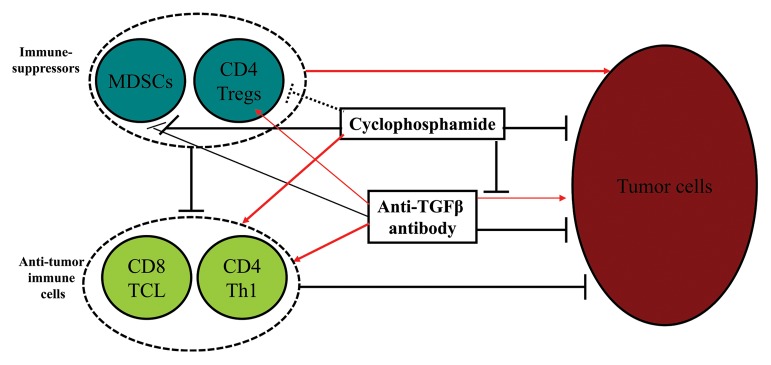
Figure 1. Effects of cyclophosphamide and anti-TGFβ antibody on malignant and immune cells. Cyclophosphamide induces the demise of cancer cells, inhibits the tumor-promoting effects of transforming growth factor β (TGFβ)-specific antibodies, reduces the number of CD11b+Gr1+ myeloid-derived suppressor cells (MDSCs) and induces maturation of MDSCs, may transiently limit the number of regulatory T cells (Tregs), and stimulates the differentiation of antitumor TH cells. Anti-TGFβ antibodies normally inhibit the survival as well as the invasive/metastatic potential of cancer cells, but may also promote their growth (by blocking the anti-proliferative activity of TGFβ), at least in some settings, promote the expansion of Tregs, induce the massive infiltration of neoplastic lesions by T cells, and, in concert with cyclophosphamide, reduce the number of MDSCs while promoting the maturation of CD11b+Gr1+ cells. Solid black lines: inhibition/blockade; dashed black lines: uncertain inhibition; red arrows: stimulation/promotion/activation.
